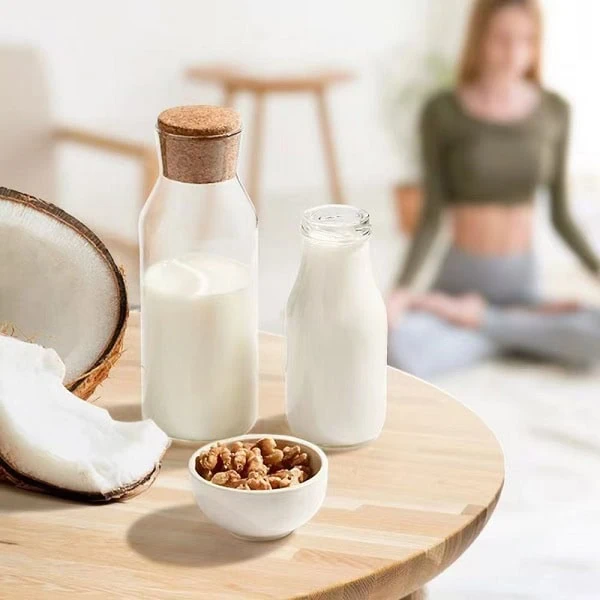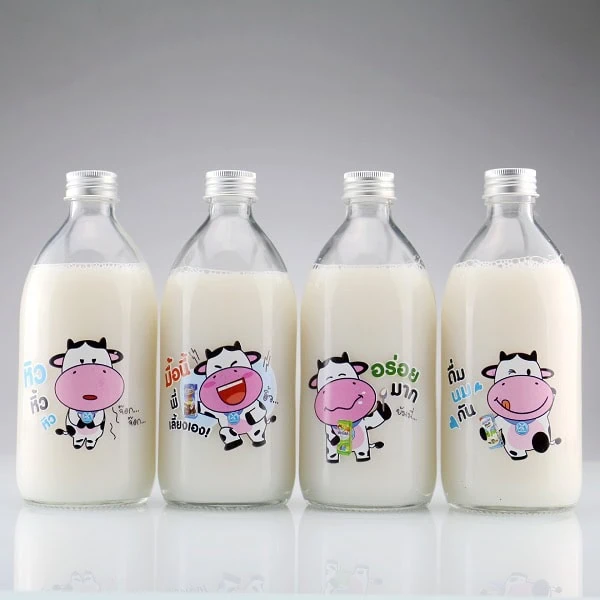Yes, glass milk bottles are generally safer than plastic bottles, especially when considering factors related to health and contamination. Here’s why glass is a safer option:

No Harmful Chemicals in Glass
One of the main safety concerns with plastic bottles is the potential for harmful chemicals to leach into the milk. Many plastic bottles, especially those made from lower-quality plastic, contain chemicals like BPA (Bisphenol A), phthalates, and styrene, which can leach into food and beverages, particularly when exposed to heat or light. These chemicals are linked to a range of health problems, including hormone disruption, reproductive issues, and even certain types of cancer.
Glass, on the other hand, is chemically inert, meaning it does not react with food or beverages. It won’t leach any harmful substances into your milk, making it a safer option for storing liquids. This makes glass not only safer for your health but also better for the environment since it doesn’t release chemicals that could end up in the soil or water when disposed of.
Glass Does Not Absorb Chemicals or Odors
Plastic can absorb odors and chemicals from the food or liquid it contains. Over time, plastic bottles can develop an unpleasant smell or flavor, especially if they are reused or exposed to certain substances. This can affect the taste and quality of the milk.
Glass, being non-porous, does not absorb odors, flavors, or chemicals, meaning your milk will stay fresher and taste cleaner. This is particularly important for products like milk, where flavor and freshness are crucial.
No Risk of Harmful Additives
Some plastic bottles contain additives such as flame retardants, stabilizers, and colorants that are used to make the plastic more durable or visually appealing. These additives can be harmful and may leach into the food or beverages stored in plastic containers.
Since glass is made from natural materials—sand, soda ash, and limestone—it does not require such additives. This makes glass a purer and safer material for storing milk and other food products.
No Risk of Melting or Deforming
Plastic bottles can warp or melt when exposed to high temperatures, such as when left in a hot car or stored near heat sources. This can cause the plastic to release harmful substances into the milk. In extreme cases, plastic bottles may even crack or break under certain conditions.
Glass bottles are much more heat-resistant than plastic. While glass can break if dropped, it won’t deform or release harmful substances when exposed to heat. This makes glass a safer choice for storing milk, especially in situations where temperature fluctuations are common.

Conclusion
In summary, glass milk bottles are safer than plastic bottles for several key reasons. Glass is chemically inert, meaning it won’t leach harmful substances like BPA or phthalates into your milk. It also eliminates the risk of microplastics contamination and chemical absorption, both of which are concerns with plastic containers. Glass bottles are more durable, heat-resistant, and reusable, offering a purer, safer option for storing milk and other beverages.
If you’re concerned about your health and the safety of your food and drink, switching to glass bottles is a smart choice. Not only are they safer for you, but they are also better for the environment, making them a win-win for both your well-being and the planet.

